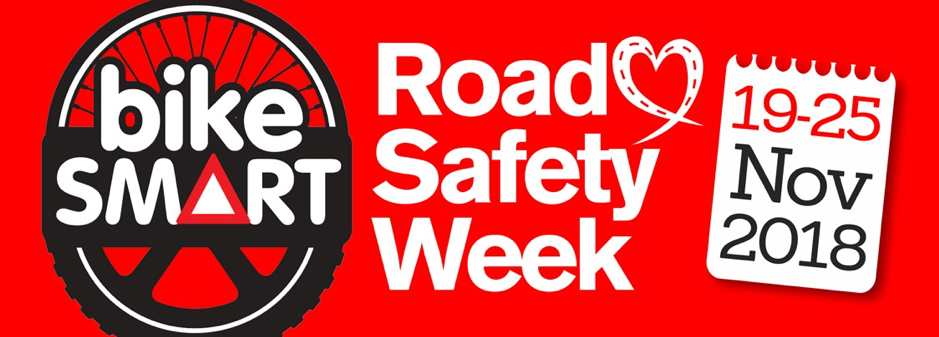It’s Road Safety Week and the theme for this year is ‘Bike Smart, so here’s a post about how National Standards or Bikeability training can help you to bike smarter.

Cycling is a safe form of transport that prolongs life through the health benefits it delivers. Although various studies suggest that ‘the health benefits of cycling outweigh the injury risks by between 13:1 and 415:1’, safety remains one of the most commonly cited barriers to riding for transport (see Cycling UK’s site for these and lots of other great stats about cycling).
For our members who are new and occasional riders, lacking confidence to ride on the road is one of the biggest barriers to riding. Amongst our regular riders, not knowing a safe route is one of the most commonly cited barriers to riding to work.
Given that cycling is a relatively safe form of transport and people who ride regularly are fitter, healthier and live longer, what can people do to ‘bike smart’ and boost their road riding confidence?
Luckily, the answer is out there and for many children and adults in the UK, it’s totally free. Bikeability (‘cycling proficiency for the 21st century’) provides children with the basic knowledge and skills they need to ride confidently on roads. It’s based on the same National Standards, written in 2003 and approved by the Department for Transport, that adults who want to ride on-road should also be familiar with. Over 2.5 million people have benefitted from cycle training based on these standards, becoming safer and more competent riders as a result.
We highly recommend cycle training for riders of all abilities. If you ride regularly and think you are a competent road user, you are likely to gain a great deal from a one- or two-hour session with an instructor; a refresher every few years is also a great way to identify and resolve any bad habits that have crept into your biking behaviour. If you’ve never felt confident riding on the road, then cycle training will change your life!
There’s no substitute for doing the training yourself but we’ve listed three of the key principles below to give you a flavour of what the National Standards are all about:
Before riding on the road, you need to be able to make sure your bike is roadworthy (the ABC test is a quick and easy way to do this) and to have the bike handling skills to control it effectively with one hand so that you can signal effectively.
People on bikes aren’t in the way of traffic, we are traffic – and we should behave like it. This means we must obey the rules of the road and that we are entitled to use all of it. The primary position, also known as ‘taking the lane’, is the default position for riding. By taking the lane you can see and be seen better, you prevent vehicles from overtaking unsafely and you can clearly signal your intentions to other road users.
In order to be aware of what’s happening around you and to spot potential hazards early, it’s important you look over your shoulder regularly. Anyone with a driving license knows that looking often is key to executing manoeuvres safely – the same applies on a bike. Well-trained road riders will check over their shoulder multiple times – as well as being alert to what’s going on in front and to the side – even for basic manoeuvres. Good looking is also crucial to communicating effectively with other road users: eye contact with a driver is the only way you can be 100% that they have seen you.
Cycle training can help you to bike smart - contact your local authority to find out how you can access it in your area.
As the nights draw in it's also a good idea to bike smart by using high quality lights and hi-viz gear - you can unlock discounts for these from Proviz, Beryl and Torch by taking part in our Winter Wheelers promo, find out more and register here.
Privacy policy
All rights reserved. Copyright 2021